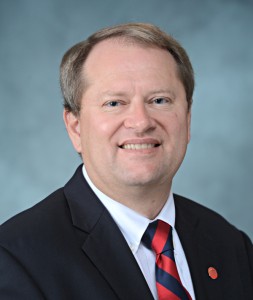Awards are always nice things to receive – especially when they weren’t expected.
So when John Z. Kiss returned from a conference in Moscow and found an email announcing he is the recipient of NASA’s Outstanding Public Leadership Medal, the UM grad school dean was thrilled.
“I have worked with NASA for 27 years and feel humbled and honored to receive this medal,” said Kiss, who plans to attend the awards ceremony at the NASA-Ames Research Center in September. “I feel very privileged to contribute, in a small way, to the excitement of space research and to be a part of NASA’s broader mission to educate and inspire the next generation.”
The prestigious honor recognizes non-government employees for notable leadership accomplishments that have significantly influenced the NASA Mission. The internationally renowned scientist served as vice chair of the International Committee on Space Research. As TROPI spaceflight project director from 2004 to 2010, Kiss supervised 36 scientists and engineers at four NASA centers and two centers of the European Space Agency. These efforts resulted in two successful projects on the International Space Station.
“We have had seven spaceflight projects, which have been on the Space Shuttle and now the International Space Station,” Kiss said. “Thus, this award is shared by the numerous colleagues, co-workers, undergraduates, and graduate students who have been part of these exciting projects.”
Kiss is a pioneer in studying plants in fractional gravity, research that is impossible to do on Earth. His Seedling Growth-1 experiment was on-board SpaceX-2, which docked with the International Space Station last year. A professor of biology, he is principal investigator on the program designed to study light and gravity signaling in plants and their effects on cell growth and proliferation. It also has a strong relevance for improving crop species on Earth to obtain increased production and sustainability.
“I’ve had the pleasure of knowing John for about 10 years and all during those years, I’ve been impressed with John as a leader,” said Sidney Sun, chief of NASA’s Space Biosciences Division. “He’s been a leader in plant physiology, identifying how plants respond to different lighting and gravitational conditions.”
Kiss and his colleagues are continuing to work with NASA-Ames on the Seedling Growth-2 project, which will launch on the SpaceX4 mission to the ISS Sept.19.
For information, on the latest mission, click on this link.
